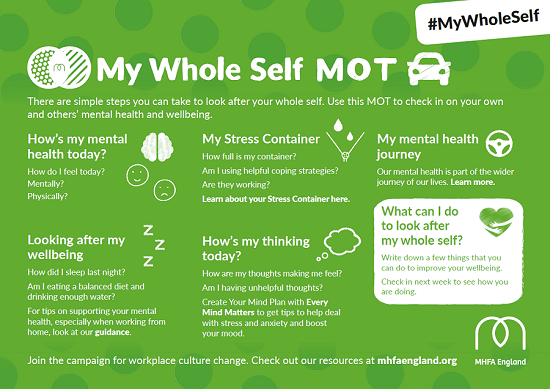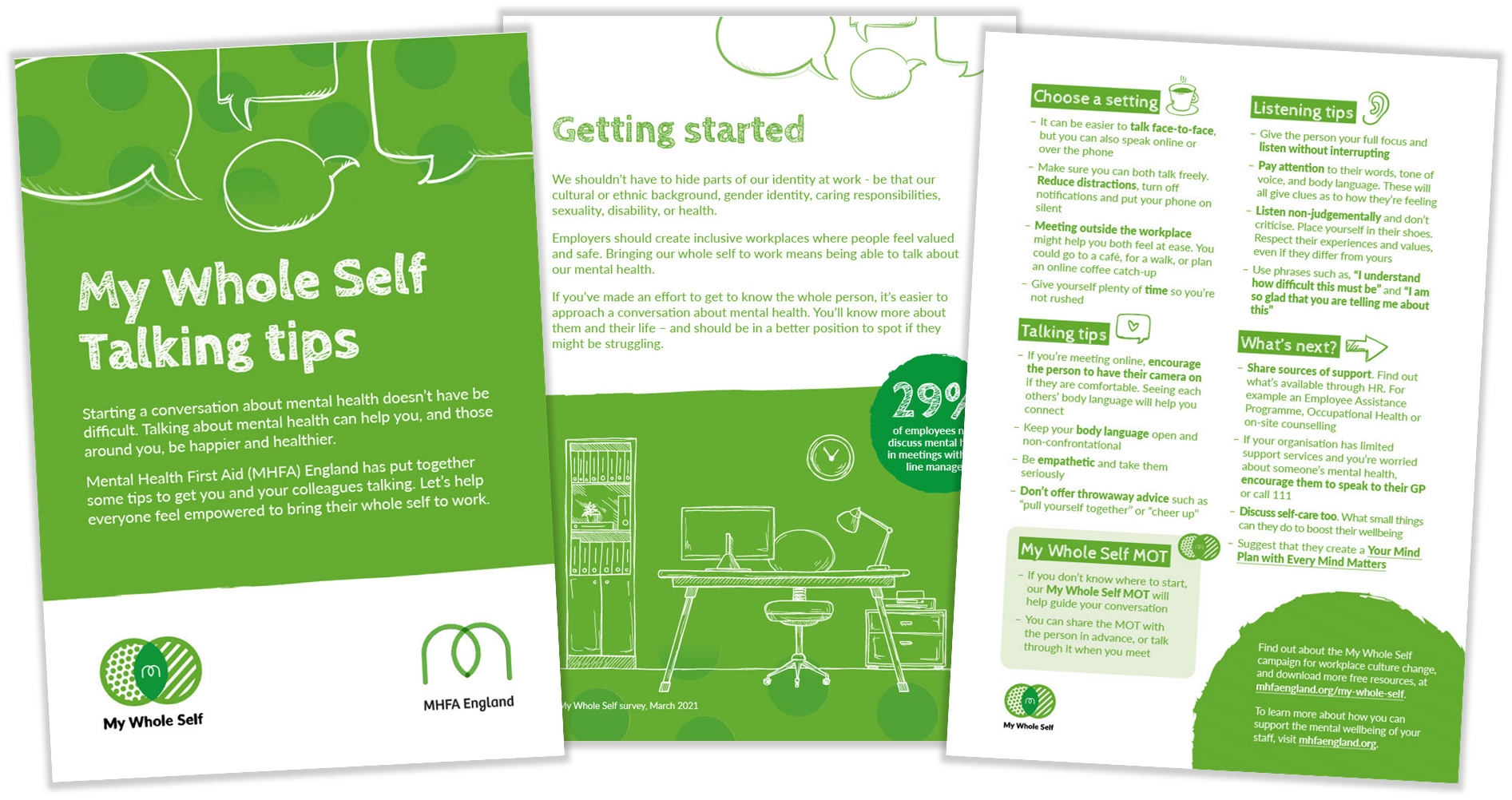Data released today to mark My Whole Self Day has revealed that nearly double the number of employees report that their workplace has failed to check-in on their wellbeing over the past year, 48% up from 25% in 2021. This is taking place at a time of increased reports of mental ill health and warnings from across the sector that the number of people needing support will grow.
Research from the Mental Health Foundation and LSE suggests that mental health problems cost the UK economy at least
£118 billion a year. This, coupled with the demands of the pandemic and the many changes to our ways of working over this period, means that now is the time for employers to rethink their efforts to better support and empower staff and retain talent.
The ONS
reports the number of people solely working from home is declining. As more people return to the workplace, there is an opportunity to build mental health and wellbeing strategies that help fuel productivity, reduce sick days, increase retention, and attract new talent. There won’t be a one size fits all solution. Each workplace will need to balance its objectives with its employees needs to create ways of working that work for people and work for business.
Employers should capitalise on the fact that half of employees surveyed felt most comfortable talking about their mental health face-to-face (47%).
Despite variable efforts from employers, the pandemic has brought some benefits to workplace wellbeing. One in four of us feel we can always bring our whole self to work (24%). This is an increase from only 16% of people who felt they could always be their whole self at work pre-pandemic. More of us also feel more comfortable discussing our workplace mental health, with a third of people (32%) saying they are more comfortable doing so since the pandemic.
Explore workplace courses
Employers need to make the most of these pandemic silver linings and step up their approach. The highest performing workplaces are supportive and inclusive. By putting diversity and inclusion at the centre of mental health and wellbeing, employers can create a culture where people can bring their whole self to work. Doing so, helps people to feel more engaged, to think more boldly, find common ground, and work more effectively together. Regular wellbeing check-ins, ensuring managers have the training and resources they need to support their teams and having trained Mental Health First Aiders in the workplace can help achieve this.
Access free resources

As part of My Whole Self, we have developed a suite of
free resources to help empower organisations of all sizes to support their staff with regular wellbeing check-ins.

This includes a new
Talking tips toolkit, with guidance on how to approach conversations around mental health and wellbeing with confidence and sensitivity. This tool can be used in conjunction with our
My Whole Self MOT.
Learn more about the research findings
here.

